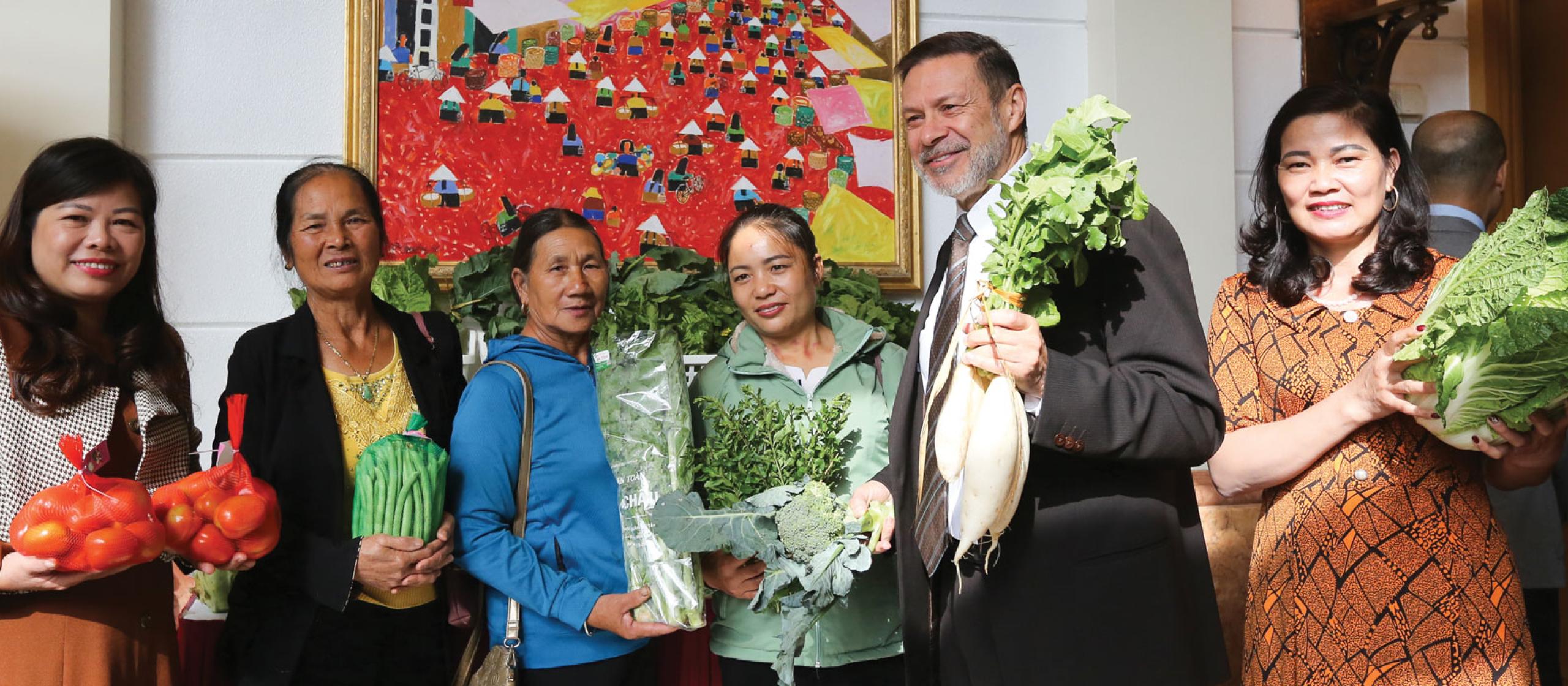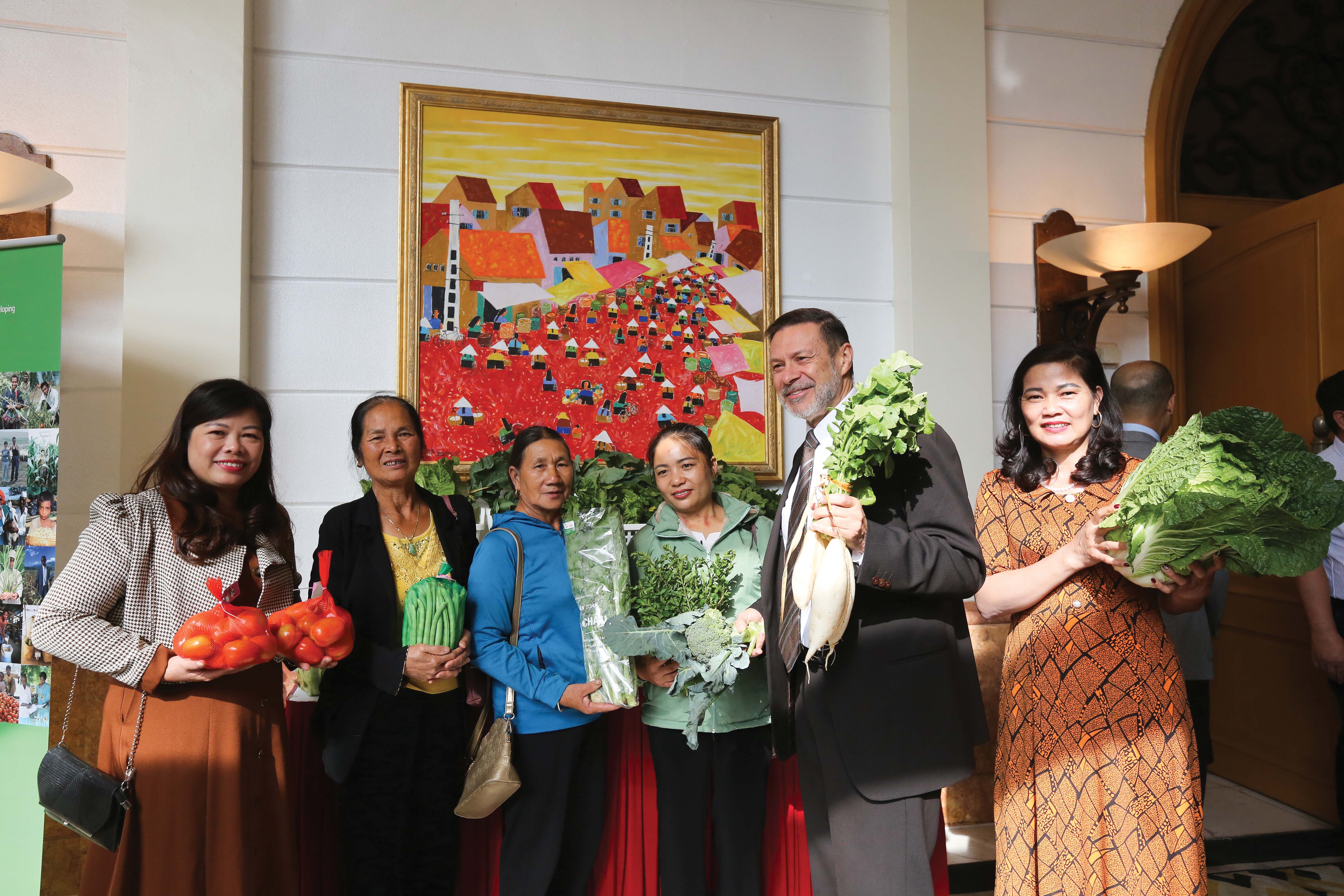Australian Ambassador to Vietnam Mr Andrew Goledzinowski said he has been impressed by the drive and confidence of Vietnamese farmers he has met who have entered high-value vegetable markets as a result
of ACIAR-supported research.
They have transitioned from growing vegetables for their household to reaching high-demand markets and have transformed their livelihoods.
‘I see a strong impact of capacity building and market linkages for farmers on the ground through ACIAR-funded projects, even though ACIAR doesn’t necessarily work directly with them,’ said Mr Goledzinowski.
He also highlighted the major 4-year, ACIAR-supported public–private partnership with the SunRice Group to help connect smallholder rice farmers in Vietnam to the premium, high-value and well-established global markets.
Mr Goledzinowski said this new partnership was a great example of how good research outcomes could be used by the private sector, which is able to provide adoption pathways.
ACIAR currently supports 25 projects in Vietnam; 13 specific to Vietnam and 12 that are part of broader regional projects.
Areas of research cover agribusiness development, climate change impacts, fisheries, forestry, livestock systems, social systems that support gender equity and ethnic minorities, and soil and land management.
‘As Vietnam and Australia are moving to the next level of bilateral relations, ACIAR will continue to play an important role in helping Vietnam shape their rural and agriculture development agenda through more effective research collaboration,’ said Mr Goledzinowski.
‘Australia wants to support Vietnam’s socioeconomic development through ACIAR and other ongoing works with our Vietnamese partners. Agriculture plays a pivotal role in this picture.’




